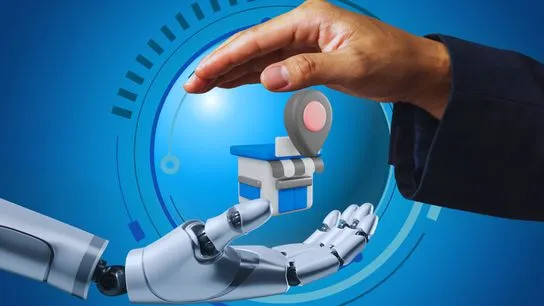How AI is Impacting Franchising in 2024

From the way franchisors sell franchises to the way franchisees satisfy customers, artificial intelligence (AI) has the power to significantly disrupt the status quo.
The age of artificial intelligence (AI) is here and it’s having a big impact on the franchise industry (along with every other industry, basically). This transformation is driven by a variety of factors, including technological advancements, consumer expectations and the continuous search for operational efficiency and cost reduction.
AI and robotics are at the forefront of creating more efficient, precise and cost-effective solutions within franchising. Robots, especially collaborative robots (cobots), are being increasingly used across industries for tasks ranging from assembly to customer service, thanks to their ability to work alongside humans safely and efficiently. These technologies — ranging from deep-frying robots to Google-powered drive-thrus — offer franchises the ability to automate tedious tasks, improve operational efficiencies and enhance customer experiences????.
RobotLAB, recognized as a premier robotics integrator, recently launched the world’s first robotics integration franchising program, for example, marking a significant milestone in the integration of AI and robotics into the franchising model. This program is designed to meet the growing marketplace demand for AI solutions across various sectors, including delivery, cleaning, education and customer service, which have been exacerbated by persistent labor shortages.
“The national conversation around artificial intelligence and the resulting interest in the inherent advantages of robotics has created a strong tailwind that’s propelling the industry demand for a more efficient and cost-effective approach to business in critical sectors,” said Elad Inbar, founder and CEO of RobotLAB, in a statement. “As the incorporation of robots becomes increasingly ubiquitous, franchising allows RobotLAB to better serve our growing customer base with passionate, well-trained and skilled franchisees who are experts in the communities where they operate and will provide the highest level of customer service, including timely robot demos, training, service, repair and more.”
The integration of AI into franchising goes beyond automation, offering sophisticated data analytics capabilities. Franchises that adopt AI technologies can leverage big data for predictive analytics, improving decision-making processes, optimizing operations and enhancing customer engagement. This data-driven strategy also has the potential to significantly impact the franchise development realm.
QUALIFYI, for example, is a cutting-edge AI tool for franchisee matching, owned by its sister company FranNet. The AI-focused software systems were meticulously crafted to simplify the very essence of franchising for not only prospective franchisees, but also for franchisors, FSOs and even franchise consultants.
QUALIFYI’s MyQualifyi portal, for example, enables potential franchisees to educate themselves about the industry, debunk myths and get immediate answers to their franchising questions.
“Recognizing that people spend approximately 70% of their time researching before making a purchase, we’ve developed the MyQualifyi portal,” Tracy Rickman, president and chief operating officer of QUALIFYI, said in a statement. “MyQualifyi allows individuals to assess and pre-qualify themselves for franchise ownership. They can introspectively answer questions like, ‘Do I have the necessary resources, time and financial capability?’ Once they’ve pre-qualified, we assist them in scoring and identifying suitable business opportunities that align with their preferences and capabilities. When users are ready, the site facilitates their journey further, helping them find matches and engage with franchisors effectively.”
The digital transformation driven by AI and robotics also includes advancements in digital platforms, online learning and fintech solutions like blockchain for secure transactions. These technologies enable franchises to expand globally, offer personalized experiences to diverse consumer bases and ensure financial transactions are secure and transparent??.
Despite the promise, the integration of AI and robotics into franchising also presents challenges, including the need for substantial initial investments, ongoing maintenance costs and the imperative to continually update technological competencies. There’s also the human aspect, where the displacement of jobs by automation requires strategies for workforce reskilling and adaptation??.
Overall, AI and robotics are undoubtedly shaping the future of franchising, offering unprecedented opportunities for innovation, efficiency and growth. As these technologies continue to evolve, their adoption will likely become a significant differentiator in the competitive landscape of franchising. However, franchises must navigate the complexities of technology integration, addressing both the technical challenges and the human impacts, to fully realize the benefits of AI and robotics in their operations.
For more information on AI technology in franchising, check out these related articles:



